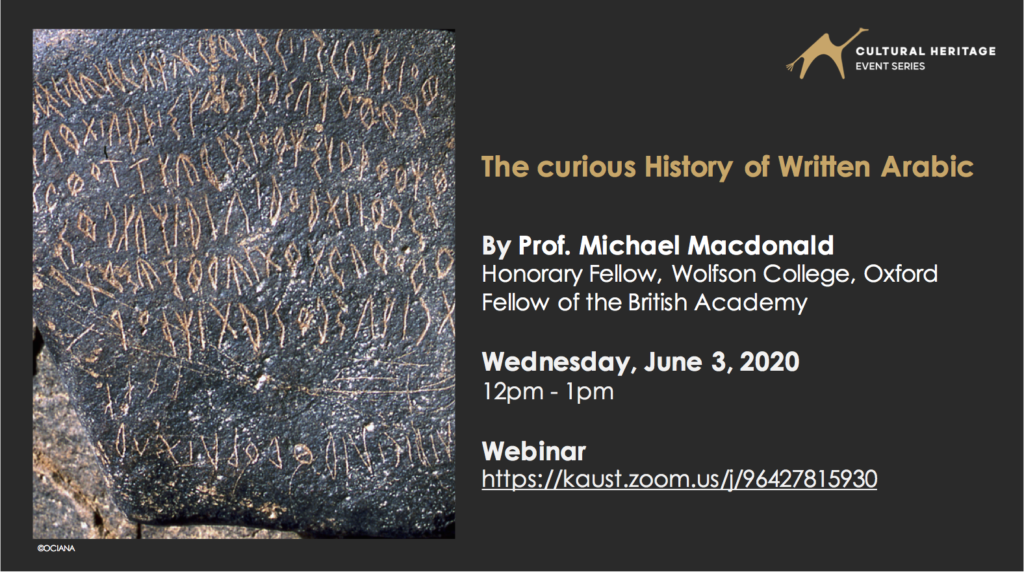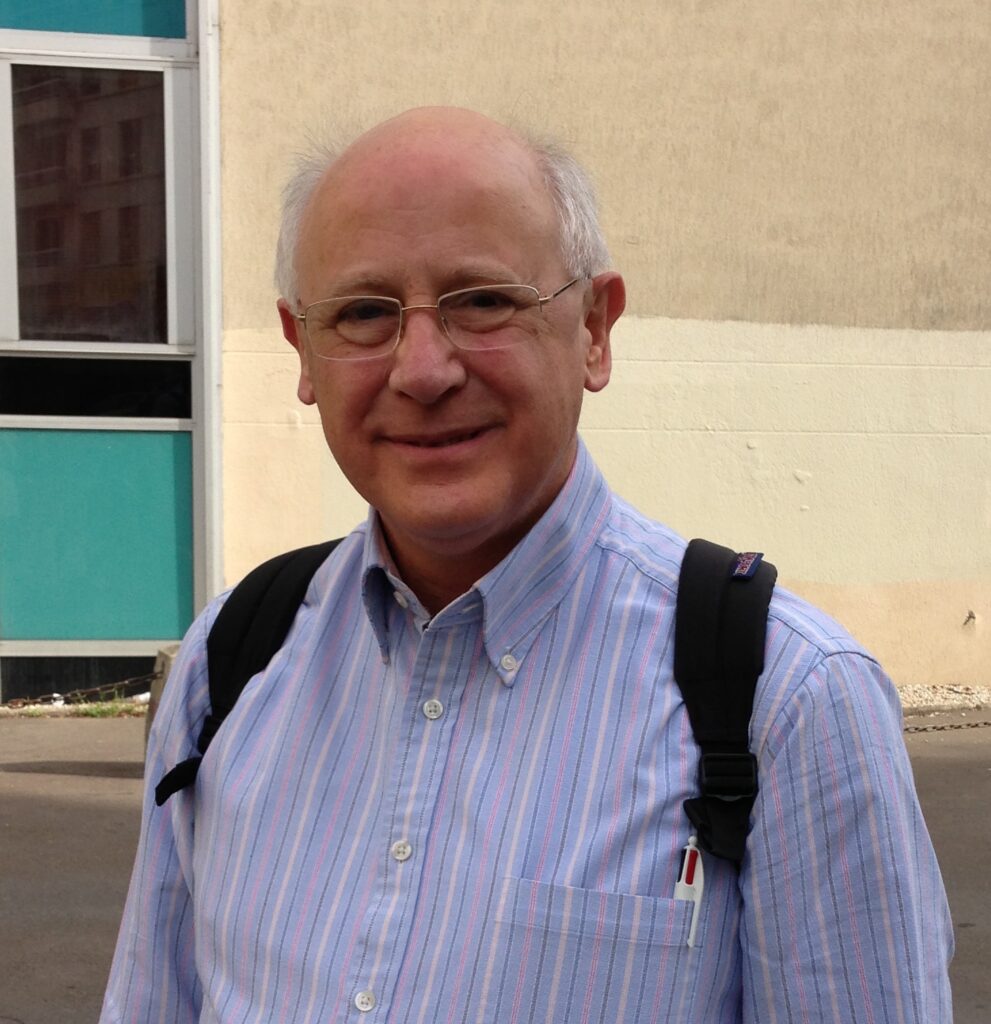
Wednesday, June 3, 2020
12:00 – 1:00 p.m.
On Zoom
The curious history of written Arabic
By Michael Macdonald, Honorary Fellow of Wolfson College, Oxford and Fellow of the British Academy.
Abstract
We find many references to “Arabs” and “Arabias” in ancient literatures, but always by foreign writers not by the Arabs themselves. Why is this? We first hear of an Arab in an Assyrian document of the 9th century BC, but it is not until 1200 years later, in the 4th century AD, that “Arabs” are first mentioned in Arabic. It seems very likely that at least some of the Nabataeans spoke Arabic yet they used the Aramaic language and script for writing. But, at the same time, the nomads on the edge of their kingdom were writing their dialects of Arabic in scripts of their own. Why didn’t the Nabataeans do the same and save us all a great deal of trouble by using a script suited to the Arabic language, rather than the Nabataean Aramaic script which did not have enough letters? This paper will examine the relationship between Arabic and writing through the centuries, in the hope of providing some answers.
About the speaker

Michael Macdonald is an Honorary Fellow of Wolfson College, Oxford and a Fellow of the British Academy. He is also on the Board of the International Association for the Study of Arabia (https://www.theiasa.com/). He has worked for the last 45 years on the languages, scripts, inscriptions, and history of ancient Arabia and its neighbours and has led epigraphic surveys in Syria, and continues to lead them in Jordan and the kingdom of Saudi Arabia where he is the director of the British section of the Saudi-British-German Epigraphy and Landscape in the Hinterland of Taymāʾ project.
Follow us on Twitter and Facebook and tune in to our Youtube channel if you missed the previous webinars.
The Cultural Heritage Event Series is organized by Dr. Laurence Hapiot, Archaeological Research and Cultural Outreach, Academic Affairs.


